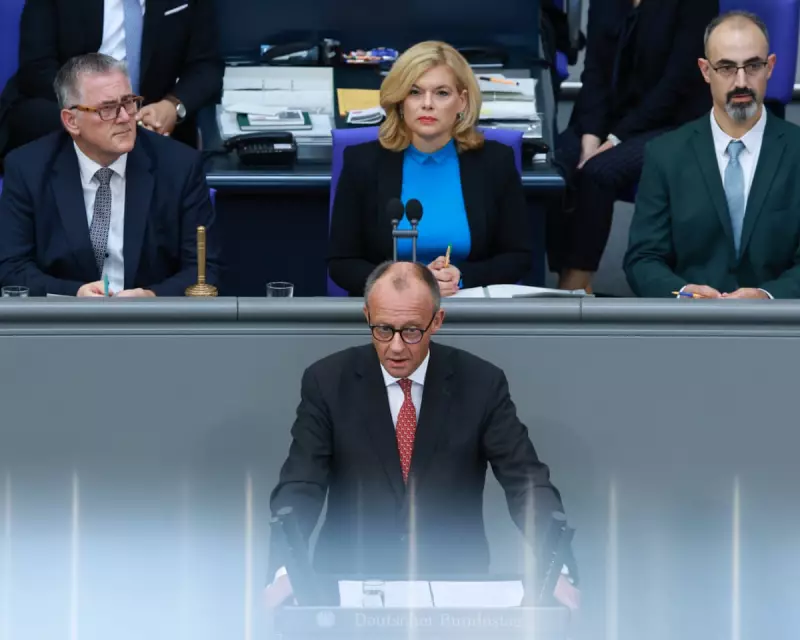
German Chancellor Friedrich Merz faced a blistering onslaught in the Bundestag on Wednesday, as his government's contentious position on Ukraine plunged the ruling coalition into open warfare and triggered alarm across European capitals.
The parliamentary session erupted into chaos as opposition leaders and coalition partners launched scathing attacks on Merz's administration, accusing it of undermining Western unity against Russian aggression. The Chancellor's refusal to permit Ukraine to use German-supplied weapons for strikes on Russian territory has become the central flashpoint, exposing deep fractures within Germany's governing alliance.
European Allies Sound Defence Alarm
The domestic political crisis coincides with grave warnings from Germany's closest European partners. Both Finland and Latvia have issued stark assessments of the continent's defence readiness, with Finnish officials declaring Europe "not prepared" for potential conflict.
Latvian Foreign Minister Baiba Braže delivered particularly sobering testimony, revealing that NATO members would struggle to meet defence spending targets until at least 2028-2029. "The reality is we are facing a dangerous capability gap," she stated during tense discussions in Berlin.
Coalition on the Brink
Within Merz's coalition, the liberal FDP party has emerged as the most vocal critic of his Ukraine strategy. Senior FDP figures have openly broken ranks, demanding immediate authorization for Ukraine to deploy German weapons against military targets within Russia's borders.
The deepening rift threatens to destabilize Merz's already fragile government, with parliamentary sources describing the atmosphere as "the most toxic since the coalition took power." Opposition leaders from the SPD and Greens have seized on the disarray, accusing Merz of endangering European security through hesitation.
International Fallout Intensifies
The German Chancellor's troubles extend beyond domestic politics. Diplomatic sources indicate growing frustration among NATO allies regarding Germany's cautious approach. This hesitation comes despite Ukraine's increasingly desperate pleas for enhanced military support as Russian forces intensify their offensive.
European defence officials, speaking on condition of anonymity, expressed particular concern over the timing of the crisis, noting that Putin's Russia appears emboldened by Western divisions. "Every day of delay in providing full support has tangible consequences on the battlefield," one official warned.
As the Bundestag debate rages into the evening, Chancellor Merz finds himself isolated both at home and abroad, facing what many observers are calling the most severe test of his leadership to date.






